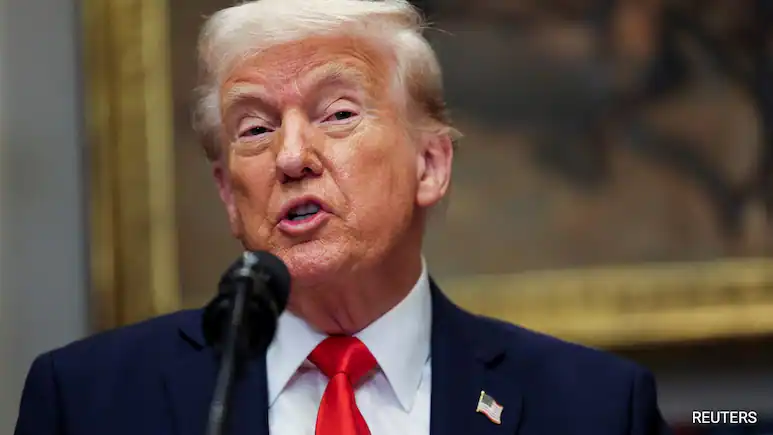The Trump administration’s approach to deportation policies has once again sparked legal and constitutional debates, with recent developments concerning the withholding of critical deportation flight details for Venezuelans. The legal confrontation escalated after Justice Department lawyers refused to disclose the number of Venezuelans deported under the Alien Enemies Act, despite direct inquiries from Chief U.S. District Judge James Boasberg. This legal standoff is seen as a crucial test of executive authority in immigration enforcement and judicial oversight, bringing broader implications for the balance of power between the judiciary and the executive branch.
The Alien Enemies Act, originally enacted in 1798, grants the president broad authority to regulate or remove foreign nationals from hostile nations during times of war or conflict. Under the Trump administration, this act was invoked to justify deportations of Venezuelans amid strained U.S.-Venezuela relations. However, the legal challenge arose when Judge Boasberg issued a temporary order blocking deportation flights for Venezuelans, seeking further clarity on the government’s compliance with immigration laws and humanitarian protections.
Despite the court order, Justice Department lawyers, including Attorney General Pam Bondi, declined to provide specific figures or details on the number of Venezuelans deported. In their legal filing, they argued that there was “no justification” to comply with the judge’s request, asserting that the oral statements made by the judge were “not independently enforceable.” This argument hinges on a strict interpretation of judicial authority, contending that the judge’s inquiries do not mandate executive compliance absent a formal, written ruling.
The Trump administration’s refusal to disclose deportation figures is primarily rooted in concerns over national security and foreign relations. The government maintains that revealing such information could compromise diplomatic negotiations and operational security, particularly as the U.S. sought to exert pressure on the Nicolás Maduro regime in Venezuela.
The Justice Department further contended that, since an appeal was already filed against Judge Boasberg’s ruling, compliance with his information request was premature. Government lawyers argued that any mandated disclosure should occur under strict confidentiality and be presented only to the judge, excluding opposing counsel representing Venezuelan migrants. This aligns with common national security protocols in legal cases where sensitive foreign relations are involved.
Judge Boasberg’s inquiry into the deportations represents an effort to determine whether the Trump administration acted in defiance of judicial orders, which could lead to serious legal consequences. If the administration is found to have intentionally ignored the court’s directive, it could set the stage for a broader constitutional debate on executive power and judicial oversight.
Lee Gelernt, an attorney with the American Civil Liberties Union (ACLU) representing the Venezuelan plaintiffs, warned that the case was “getting very close” to a constitutional crisis. The central issue lies in whether the executive branch can unilaterally disregard or circumvent court orders under the justification of national security and foreign policy discretion.
The controversy surrounding the case has fueled political tensions, particularly among Trump critics who view the administration’s actions as part of a broader pattern of defying judicial rulings. Congressional Democrats and immigrant advocacy groups argue that withholding deportation details reflects a disregard for judicial authority and due process.
On the other hand, Trump supporters assert that the administration is rightfully prioritizing national security and border control, emphasizing that the executive branch has the prerogative to regulate immigration enforcement without undue interference from the judiciary. Trump himself took to social media, calling for the impeachment of an unnamed judge—widely assumed to be Judge Boasberg—whom he described as “a troublemaker and agitator” for obstructing his immigration policies.
This case serves as a microcosm of the broader battle over immigration policy under the Trump administration. The legal fight over the Alien Enemies Act and judicial intervention in deportation cases underscores the ongoing friction between national security priorities and judicial oversight.
If the Trump administration ultimately prevails in court, it could set a precedent that strengthens executive discretion in immigration enforcement, potentially limiting the ability of courts to intervene in future deportation cases. Conversely, if the judiciary rules against the administration and demands full transparency, it could reaffirm judicial checks on executive power, particularly in immigration matters involving humanitarian concerns.
Additionally, this case highlights the evolving legal discourse on the balance between confidentiality in national security affairs and the public’s right to government transparency. If the courts mandate disclosure, it may open the door for increased scrutiny of immigration enforcement practices under future administrations.
With the Trump administration’s appeal pending before the D.C. Circuit Court of Appeals, the legal battle is far from over. The appeals court set deadlines for written arguments, with government lawyers required to submit their case by Tuesday, followed by the Venezuelans’ legal representatives on Wednesday. Judge Boasberg has also scheduled another hearing for Friday, signaling ongoing judicial scrutiny.
Possible legal outcomes include:
- Upholding the Administration’s Position: If the appeals court sides with the government, it may reinforce the executive branch’s authority to withhold deportation details and proceed with removals without additional judicial oversight.
- Reaffirming Judicial Oversight: If the court rules against the administration, it could compel the government to provide full disclosure of deportation figures and reinforce the judiciary’s role in reviewing executive actions on immigration.
- Compromise Ruling: The court may allow for a confidential submission of deportation details to Judge Boasberg while restricting public access, balancing national security concerns with judicial oversight.
The Trump administration’s withholding of deportation flight details for Venezuelans has ignited a legal and constitutional debate that extends beyond immigration policy. This case encapsulates the broader struggle between executive authority and judicial oversight, particularly regarding national security and foreign relations.
As the legal battle unfolds, the implications of this case could shape the future of immigration enforcement, the judiciary’s role in reviewing executive actions, and the transparency standards for government policies. Whether the courts uphold or challenge the administration’s stance, this case will likely have lasting repercussions on U.S. immigration law and the broader principles of democratic governance.
With the upcoming appellate court ruling and continued judicial proceedings, the outcome of this legal confrontation will serve as a landmark decision in the ongoing debate over immigration, executive power, and constitutional checks and balances.


